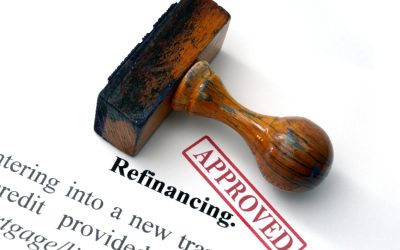It can be a struggle to secure financing for costly real estate and equipment. Facing a high upfront cash investment and limited lender options, many business owners turn to the SBA 504 loan, built for large fixed-asset purchases. But qualifying can be tough, with strict requirements tied to job creation and local impact. That’s why working with a commercial loan broker can make all the difference, helping businesses navigate the process and improve their chances of approval.
Funding Challenges and the Role of SBA 504 Loans
Industries like aviation, mining, utilities, manufacturing, and large-scale development often require major upfront investments in equipment, infrastructure, and property. These businesses also tend to face longer timelines before turning a profit, making traditional financing harder to secure. While some rely on hybrid financing, mixing debt with equity, giving up ownership or control isn’t always ideal.
That’s where the SBA 504 loan stands out. Designed specifically for capital-intensive needs, it offers long-term, fixed-rate financing for major fixed assets like real estate and heavy equipment. But qualifying isn’t easy. The process is detailed and often tied to broader goals like job creation or regional development. A knowledgeable loan broker can guide business owners through the process, strengthen their application, and help them secure the funding they need to grow.
How SBA 504 Loans Work
SBA 504 loans differ from traditional or private loans in both structure and purpose. They use a 50/40/10 model, where 50% of the funding comes from a private lender, 40% comes from a nonprofit Certified Development Company (CDC), and the remaining 10% comes from the borrower as a down payment.
The CDC portion is guaranteed by the SBA, which enables the non-profit organization to easily re-sell the note. This creates the liquidity that in turn allows the CDC to fund the small business. The private lender, on the other hand, provides only 50% of the capital but is the first lien holder.
This nearly guarantees that even in the case of default, they will be able to regain their investment. In sum, this unique structure decreases the risk for all parties and unlocks financing for small businesses that otherwise would not qualify.
SBA 504 loans are designed for long-term, fixed-asset investments. This includes purchasing land or buildings, constructing new facilities, improving existing structures, or acquiring heavy equipment with a lifespan of at least 10 years. Most fees and closing costs can be rolled into the loan, making it easier to manage upfront expenses. However, these loans do not cover working capital, inventory, or refinancing, except in limited cases.
With 10, 20, or 25-year terms and fixed interest rates, 504 loans offer predictable monthly payments and stability over time. The SBA will guarantee up to $5 million in funding through the CDC (though this can go up to $5.5 million in certain cases). Again, this represents the CDC’s 40% of the project cost. When the 50% financing from the private lender and the 10% down from the borrower are factored in, this means that 504’s can fund projects up to $12.5 million (and up to $13.75 million in certain cases).
Is an SBA 504 Right for Your Business?
These loans are best suited for companies with large, long-term fixed asset needs and a solid plan for expansion or modernization. If your business falls into one of the following categories, a 504 loan may be an ideal fit:
- Manufacturing facilities looking to purchase or upgrade large-scale machinery
- Construction companies needing land, equipment, or storage space
- Warehousing and logistics firms investing in new distribution centers
- Energy and utility providers building infrastructure or acquiring specialized equipment
- Medical and dental practices purchasing office space or advanced diagnostic machines
- Hospitals and senior living centers building new locations
- Tech and biotech companies needing custom-built office or lab space
- Fitness and physical therapy centers stocking workout machines
These businesses often face high upfront costs, but bring long-term economic value, job creation, and regional development—key elements the SBA looks for when approving 504 loans. If you’re unsure whether your business qualifies, a loan broker can assess your needs and match you with a lender experienced in your industry.
How to Qualify for an SBA 504 Loan
To qualify, borrowers must meet the SBA’s general eligibility criteria, which include operating as a for-profit business, falling within income and size limits, and being free of significant federal debt. In addition, 504 loans have specific requirements, such as owner occupancy for real estate and job creation or public policy goals, like energy efficiency or community development.
A qualified loan broker can help you determine early on whether you meet these requirements, saving you time and avoiding unnecessary applications.
One of the most common questions about the SBA 504 loan involves its job creation requirement. While the general guideline is that businesses must create one job for every $65,000 borrowed, there’s some flexibility. Small manufacturers are held to a slightly different standard—one job per $100,000 borrowed. If your business can’t meet the job creation threshold, there are alternative paths to eligibility. Many borrowers qualify by supporting broader public policy goals, such as energy efficiency, modernization, or community development. These criteria may vary based on your region.
Building a Success Plan
In addition to your application, the SBA 504 loan process requires thorough documentation about your business and the project you plan to finance. This typically includes financial statements from the past few years, personal financials for any owner with a 20% or greater stake in the company, and detailed projections for future performance. You’ll also need to submit information about the property, equipment, or infrastructure you’re financing.
A key part of your application is a well-structured business plan that clearly explains how the funds will be used and how the business will support repayment. At a minimum, your business plan should include:
- Business history and ownership structure
- Short- and long-term business goals
- Market and industry analysis
- Competitive positioning
- Financial projections and assumptions
- Justification for the loan
- Description of how the funds will be used
- Plan for job creation or public policy impact
- Evidence of repayment ability
A knowledgeable loan broker can help you review your business plan, identify any gaps, and ensure your documentation is complete and professionally presented. Many lenders reject SBA loan applications based on incomplete or disorganized submissions alone, so preparing a strong, well-documented application can make a significant difference.
The good news? You don’t have to navigate the process alone. A qualified broker can help you gather the right documentation, confirm your eligibility, and avoid costly missteps. With deep knowledge of the SBA 504 loan process, your broker can present your application in the strongest possible light, giving your business an edge in a competitive lending environment.


-400x250.jpg)

